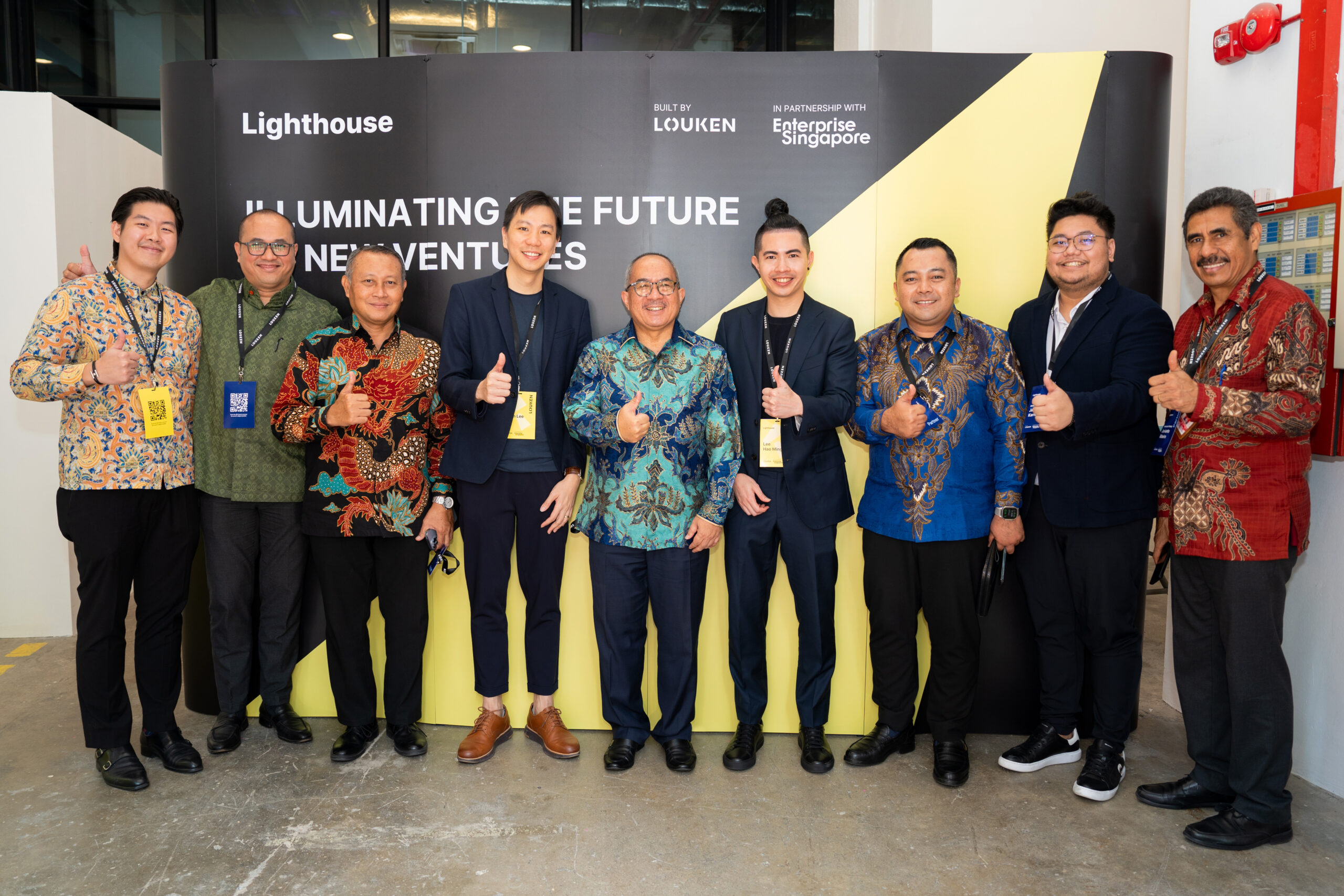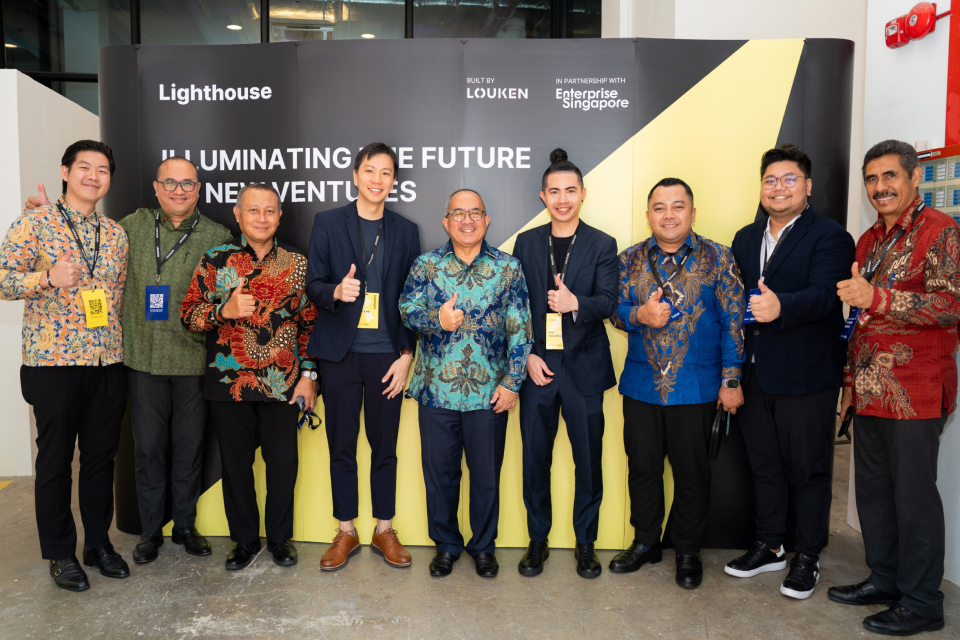Business models range from e-commerce to setting up shop overseas

AFTER building strong brands at home, some Singapore retailers now aim to reach consumers in Indonesia – South-east Asia’s biggest market with a population of 279 million, an expanding middle class and a retail sales industry projected to reach US$243 billion in 2026.
“Indonesia is primed for growth of any foreign businesses that are looking to seek out opportunities,” said Lee Haoming, chief executive officer of venture builder Louken Group.
But while appealing, the market is complex. Regulations and policies change rapidly, and the recent change of government means that businesses are proceeding with caution, said Lee. Cultural and language differences are also barriers.
This is where Louken’s accelerator programme Lighthouse comes in. Built in partnership with Enterprise Singapore (EnterpriseSG) and launched in June, the one-year programme will help businesses define themselves in the new market, strategise and create road maps, and go on mission trips and meet local partners.
The inaugural batch of companies are collectibles player Mighty Jaxx; fashion labels Ginlee Studio, Graye and Young Hungry Free; lifestyle brand The Paper Bunny; bedding brand Epitex; skincare company Ice’s Secret; and a home-grown jewellery brand.
In November, these retailers will take part in a pop-up in Indonesia, where they will sell their products and potentially, items made in collaboration with Indonesian brands.
Known or new
Some participants have already found success with Indonesian consumers. The country is one of the top sources of customers for The Paper Bunny, with Indonesian tourists making up much of the footfall at its flagship Takashimaya store.
Tax issues make it difficult for Indonesians to buy its products online, said co-founder Jaime Lee. “They come to Singapore, they buy it here, they get their friends to buy it here, they buy it through resellers... so actually there’s a lot of demand that we’re not really reaching.”
An on-the-ground presence in Indonesia will help it reach more customers there directly, she said.
Indonesians are also the main tourist shoppers at Graye’s physical stores in Singapore, based on tax refund data. The bureaucracy involved in entering the market is too much to take on alone, said creative director Xie Qianqian, but with the help of Lighthouse, Graye is now keen to make the leap.
When Xie visited Indonesia before joining Lighthouse, she found that consumers were supportive of local brands that were similar to Graye. Consumers there are also more adventurous and receptive to new things, which will allow Graye to experiment and test different concepts, she said.
Indonesia has also been a strong market for Mighty Jaxx, which sells its pop culture collectibles there online and through physical distributors and retailers. Just this year, sales in the country “ramped up very quickly” and broke US$1 million, said CEO Jackson Aw.
Most of Ice’s Secret’s sales are via e-commerce, which is a good fit for Indonesia’s booming e-commerce and social media shopping scene, said managing director Quinn Chen. The company already has customers from Indonesia, whom may have been attracted by marketing efforts with Singapore-based influencers.
For other participants, Indonesia is a relatively new market.
Young Hungry Free CEO and founder Winnie Ong had noticed the growth of Indonesia’s fashion scene and felt it was a suitable market for its designs, but joining Lighthouse gave the company a boost to fast-track its entrance.
Two to three months ago, it began joining online marketplaces such as Shopee Indonesia, searching for a warehouse in Jakarta and hiring a small local team.
Ginlee had previously held a pop-up in Surabaya, but is eager to properly break into the market. Indonesians match Ginlee’s appreciation for craft, and being there will allow the brand to “tap their strong network of craftsmen”, said founder and designer Gin Lee.
Having had some trouble with its first overseas foray to Malaysia, bed linen brand Epitex was interested in Indonesia, but held off due to the trickiness of the market – until the Lighthouse programme came along.
Affluent Indonesians are sophisticated and look for quality bed linen, sometimes even importing them from Italy, said brand director Ivan Tan. Epitex is prioritising the development of an Indonesian product series, to take advantage of their new focus on the market.
Varying goals
Louken has previously helped household names such as Charles & Keith and BreadTalk enter the Indonesian market. For Lighthouse companies, it wants to “illuminate the pathway... and guide them through the treacherous sea of entrepreneurship”. Companies also receive funding from the venture builder and EnterpriseSG.
“We are gunning for... successfully launching these brands into the market,” said Louken’s Lee.
But this may take various forms, from e-commerce to partnerships to physical stores.
Young Hungry Free and The Paper Bunny both intend to grow via e-commerce, with the latter hoping to open physical stores eventually.
Mighty Jaxx wants to open a flagship store in a mall with a suitable “ecosystem of brands”. Graye’s ultimate goal is a physical store in Jakarta, but a possible first step is having its products at multi-label stores. Ginlee also hopes to partner Indonesian retailers to carry its products.
Ice’s Secret intends to explore business-to-business opportunities with clinics. Epitex, meanwhile, remains open to possible business models for creating a brand presence and selling its products.
Lighthouse will also be a “beacon of guidance” for Indonesian brands coming to Singapore, connecting them to local players and stakeholders such as EnterpriseSG. Louken also hopes to showcase Indonesian brands by bringing Jakarta Fashion Week to Singapore next year.
Read the original article on The Business Times here.
